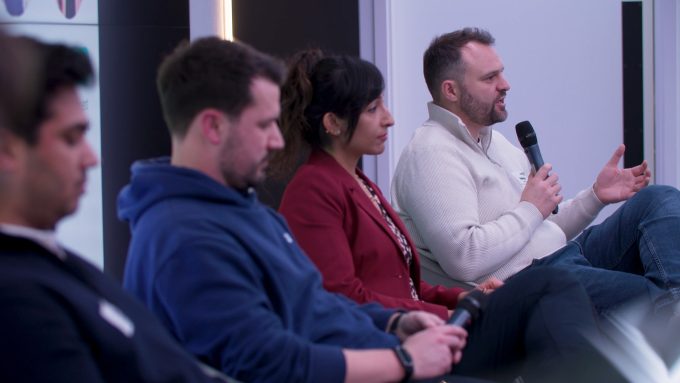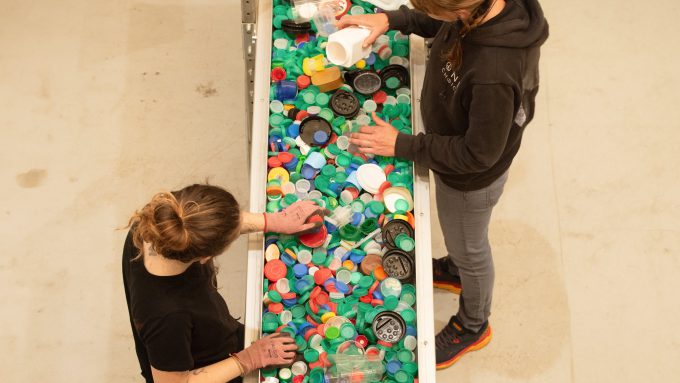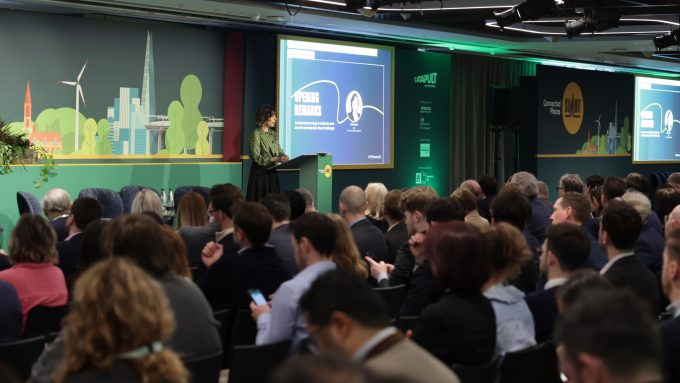
Tech trio celebrate advances for women in engineering

“Twenty years ago, I’d walk into a room and be the only woman, but we have definitely come a long way since then,” says Shweta Saxena, the chief executive of start-up firm AI Gizmo (previously Machine Max) – a participant of a previous cohort of the HS2 Accelerator.
The Accelerator supports small to medium-sized enterprises to trial their innovations and sees HS2 work in partnership with Connected Places Catapult and the Department for Transport.

“Programmes like this have helped to give women a voice and encourage a wider range of people to participate in the sector. I felt very welcomed and received tremendous support when I took part in the programme – and now I’m a mentor for other company founders joining the accelerator.Shweta Saxena, the chief executive of start-up firm AI Gizmo
“It used to be the case that if you were a junior woman, nobody would ask you to speak up. But now everyone is encouraged to give their thoughts. There is still a lot to do in the sector, but a lot of good progress has been made.”
Another participant in a recent round of the HS2 Accelerator was Barbara Johnson, the co-founder of Kortical AI, who remembers the programme providing a good level of support for everyone taking part, and making sure that “everyone’s voice was heard”.
She notes that construction leaders today tend to be more supportive of younger women entering the sector. “Men who have daughters want others to respect them, so that feeling translates into how they treat women in their teams. As a manager, you set the tone and people are doing that a lot better now.
“Women are also supporting women a lot more now, which is brilliant, but that wasn’t always the case. When I started, it felt more competitive, but now it feels more that women are looking out for each other and that we mentor each other.”Barbara Johnson, the co-founder of Kortical AI
A third alumni on the programme, Shelley Copsey of Fyld remembers “a bit of trepidation” about launching her company into the heavily male dominated sectors of technology and engineering, and whether she would “get enough of a voice in a room full of senior people”.
“When I started my career, I found networking to be quite difficult because most companies in this industry were run by men, as were most of my customers,” she says. “There weren’t as many women in leadership roles to be included in conversations back then.” She adds that the HS2 Accelerator provided a great opportunity “to see successful women entrepreneurs and chief executives supporting one another.”
But despite advances in gender equality, Shelley says she recently declined speaking at a construction summit due to a lack of gender diversity on a panel. “Our industry serves society better when it represents everyone.”
Founders’ technologies explained
Shweta developed a tool to monitor emission levels generated from pieces of plant on site, to help identify opportunities for decarbonising a fleet. Her system used magnetic sensors placed on machinery. “The HS2 Accelerator gave us a platform where we could further validate the technology and to see if there was a demand,” she says.

Barbara says Kortical has developed an AI powered chat tool to help staff on construction sites to ask health and safety related questions; helping them get the answers they need quickly. Participation in the Accelerator helped her company to test whether the technology could transfer from other sectors to construction, she adds.
Shelley adds that Fyld’s technology allows site operatives to produce video notes of activities carried out on site, and an AI tool identifies tasks that may not be on track. This allows managers to put more resources into jobs that need attention before minor issues get larger. “Working alongside HS2 gave our product extra credibility,” she says.
Helping the next generation
Shweta says there are still hurdles to overcome in terms of encouraging more women into the sector. There can be, she says, a ‘bro culture’ of men working, socialising and discussing together “that may leave other people out of decision making”.
She also points out that ‘equity’ is just as important a consideration as ‘equality’ in helping women into engineering. If a shorter person is asked to look over a wall to carry out a task, for instance, they should be provided with a stool.
“Equity is about looking at where you're coming from, and providing an extra bit of support to others when needed.”
Barbara makes the point that the migration to remote working and online meetings in recent years have proven challenging for some, but adopting a policy of ‘camera on’ during calls helps to reinforce positive interactions. Use of the ‘raised hand’ function on many software platforms is welcome too, she adds. “Some women are getting a voice that maybe they didn't have before, when sat in a room.”
She also says that senior people in a room “have a lot of influence they may not realise” and that “behaviours we were willing to put up with in the past, we're just not willing to put up with anymore”.
“I love to take female interns who don't know our business very well, and ask how they would do something differently. No idea is a stupid idea. Women can bring amazing skills to the table.”

Shelley says there is a “huge piece to be done in schools” to encourage more young women to think more about becoming entrepreneurs in engineering.
“It's incredibly important for them to see companies led by women. I'm empathetic with my team, and pride myself on helping them have the best career experiences.”Shelley Copsey of Fyld
Starting a career in tech or engineering can be difficult for women in particular, she adds, who may not have established networks of contacts.
For younger women navigating the sector, she advises people to ‘value your differences’. “I was told early in my career that I don’t have enough gravitas in a room, so I had to try and be louder. I hope the world has moved on from that now.”
Read about the work of another alumni of the HS2 Accelerator: Andrea Charlson of Madaster UK.





